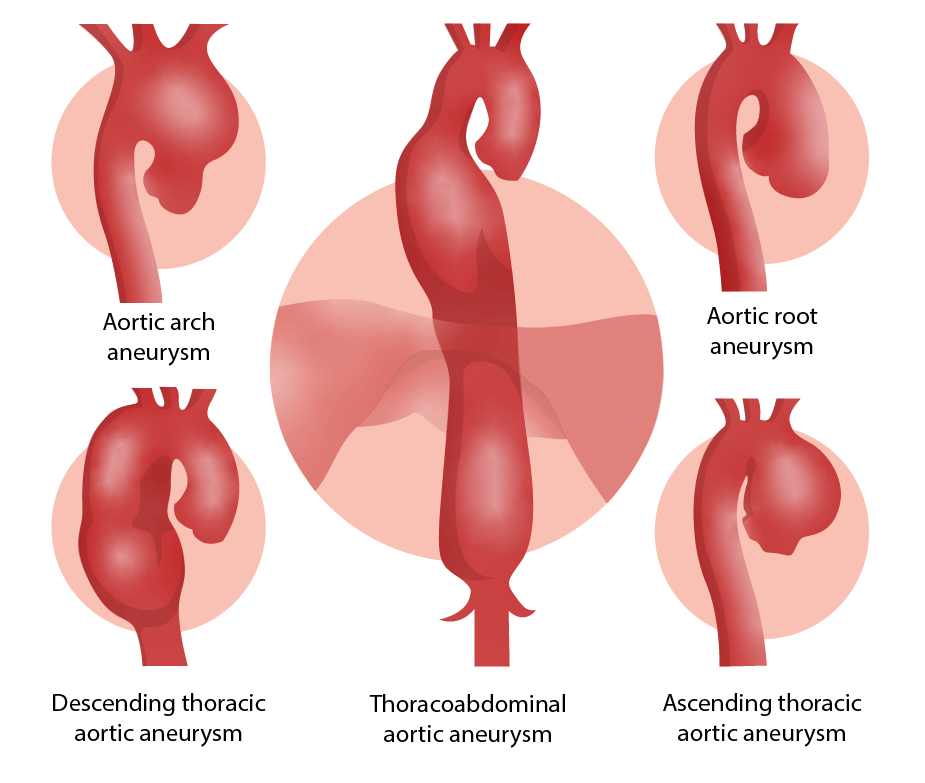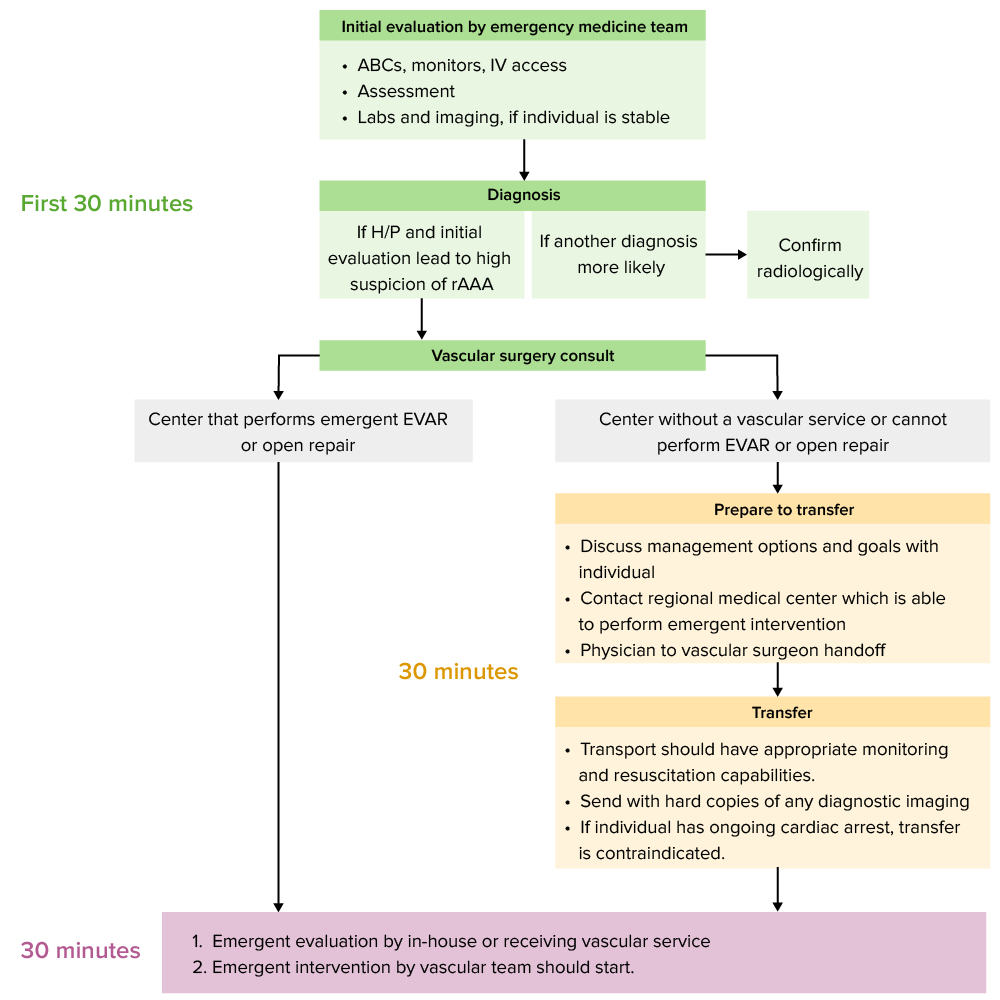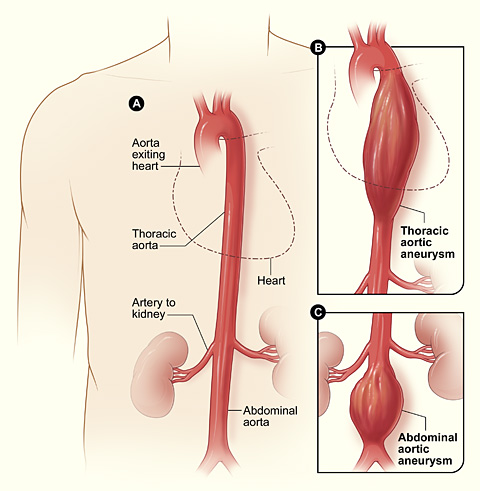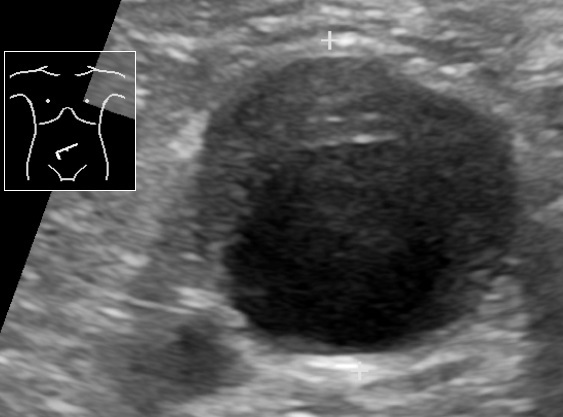Playlist
Show Playlist
Hide Playlist
Aortic Aneurysm: Etiology
-
Slides 04 VascularMedicine advanced.pdf
-
Reference List Vascular Medicine.pdf
-
Download Lecture Overview
00:00 What are the causes of aortic aneurysms or dissection? Well with respect to dissection, atherosclerosis is a very common cause. Excessive alcohol can lead to high blood pressure which puts greater stress on the aortic wall and therefore that combination of smoking, high alcohol intake, and high blood pressure can often lead either to an aortic dilated aneurysm or an aortic dissection. 00:34 There are genetic influences. It's well known now that certain genetic types and in fact the genes have been identified in certain families that in fact lead to a very high risk of dissection or aortic aneurysm. And congenital heart lesions such as coarctation of the aorta or a bicuspid aortic valve also markedly increase the risks for an aortic aneurysm because the wall of the aorta is abnormally formed often in these two entities. 01:11 Trauma can also cause an aneurysm by partly tearing the aorta for example someone in the car accident, the sudden deceleration might cause a tear in the aorta that could lead to dissection or to a later dilated aneurysm. Occasionally an infection will do this. Infected aneurysms are very nasty. They do require surgery to remove the entire infected part and then again of course always involved in these processes that lead to aneurysms or dissection is atherosclerosis because of the way that it makes for abnormal flow characteristics and abnormal structure of the aortic wall. 01:55 About 9% of people older than 65 in the United States will have an aneurysm, usually an abdominal aortic aneurysm, and it leads to about 15000 deaths in United States per year from hemorrhage when the aneurysm ruptures or bursts. The symptoms depend on the location of the aneurysm. 02:19 So if the aneurysm is in the thoracic aorta, the discomfort may be on the anterior part of the chest, here substernally, it may be in the back or even in the neck. When the aortic aneurysm is tearing or rupturing in the abdomen, the discomfort may be in the anterior abdomen or in the back of the aneurysm depending often on where the tear is occurring and where the blood is starting to leak out. With a thoracic aortic aneurysm, patients may actually become hoarse because the recurrent laryngeal nerve winds around the aortic arch and they may be stretched by an aneurysm, so chronic hoarseness could be a symptom of a thoracic aortic aneurysm particularly in somebody who is at risk. Somebody who you know could be atherosclerotic, who is hypertensive, who is a smoker. And finally when aneurysms become very large in the chest, the thoracic aneurysms, patients may have difficulty swallowing because the aneurysm is pressing against the esophagus which lies just in front of it and that can cause problems in swallowing because the esophagus is constricted by the pressure from the aneurysm.
About the Lecture
The lecture Aortic Aneurysm: Etiology by Joseph Alpert, MD is from the course Arterial Diseases.
Included Quiz Questions
Thoracic aortic aneurysm is associated with all EXCEPT which of the following risk factors?
- Atrial fibrillation
- Hypertension
- Hypercholesterolemia
- Cigarette smoking
Which of the following risk factors is commonly associated with descending aortic aneurysm?
- Smoking
- Infection
- Penetrating chest trauma
- Invasive angiography
- Pericarditis
Customer reviews
5,0 of 5 stars
| 5 Stars |
|
5 |
| 4 Stars |
|
0 |
| 3 Stars |
|
0 |
| 2 Stars |
|
0 |
| 1 Star |
|
0 |







